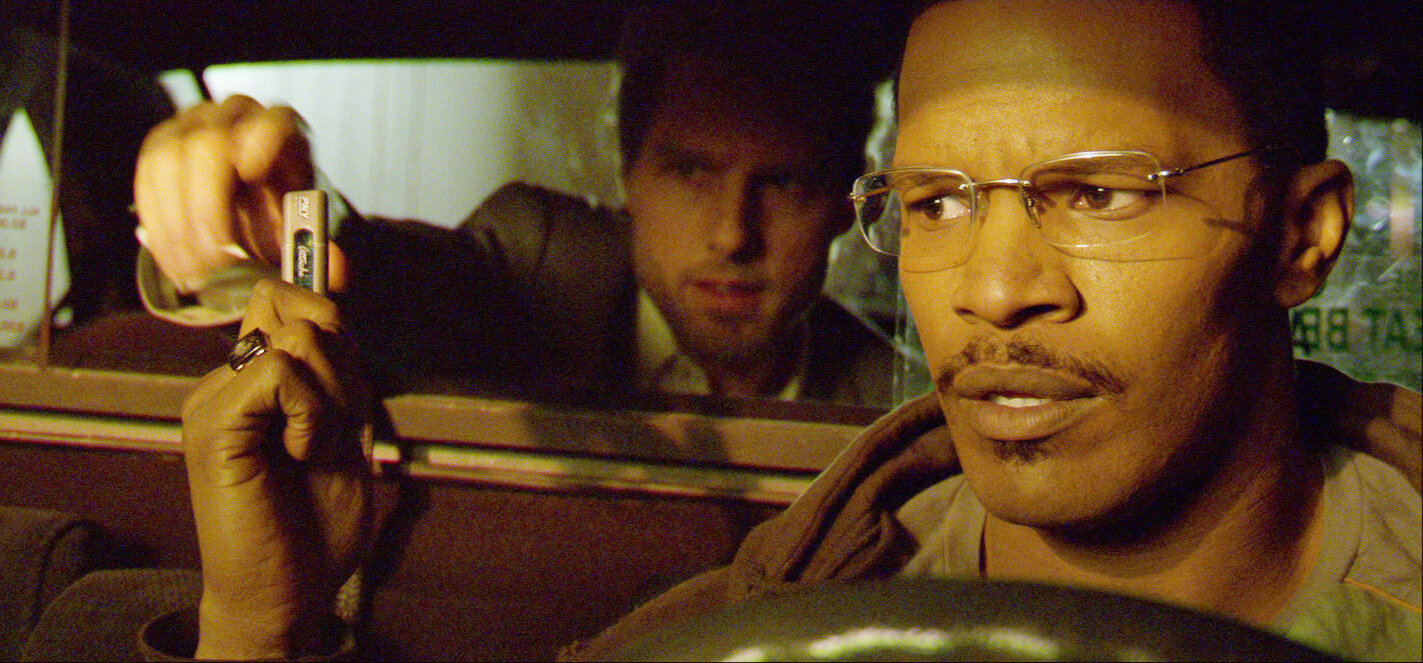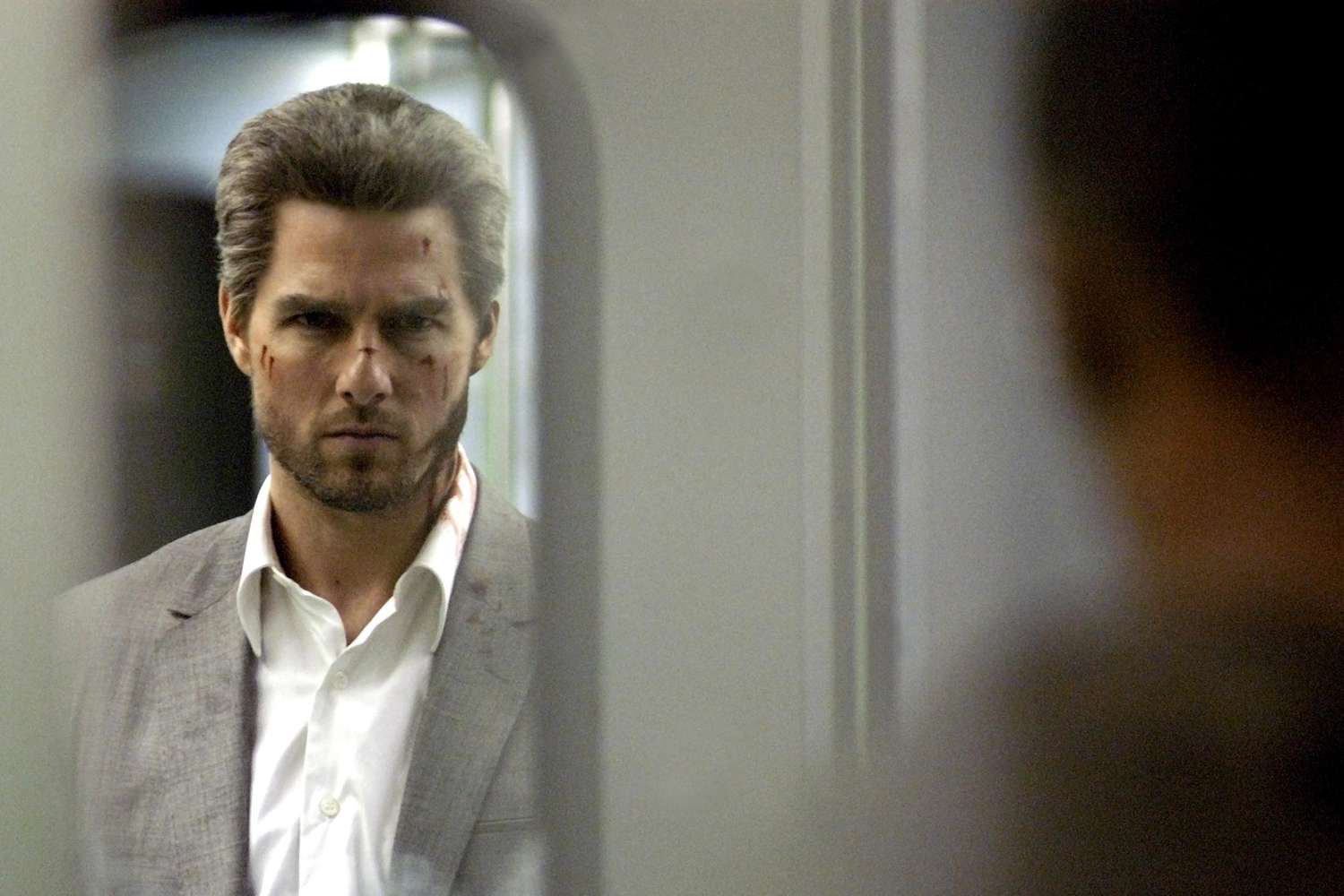Released in 2004, Collateral stars Tom Cruise as Vincent, a cold, calculating contract killer, and Jamie Foxx as Max, an everyman cab driver who finds himself unwittingly chauffeuring Vincent around the city as he carries out a series of hits. Mann’s direction is tight and focused, capturing the nocturnal beauty of Los Angeles through the lens of Dion Beebe and Paul Cameron, whose use of digital cinematography was groundbreaking at the time. “We wanted to give the night a presence, almost like a character in itself,” Mann explained. “The digital format allowed us to capture the ambient light of L.A. in a way film couldn’t.”
The casting of Tom Cruise against type was a bold move that paid off significantly. Known primarily for his heroic roles, Cruise embraced the challenge of portraying Vincent’s ruthless efficiency and moral ambiguity. “Playing Vincent was an opportunity to explore a darker side,” Cruise remarked. “He’s a professional, but he’s also a sociopath, and that duality was fascinating to dive into.” Jamie Foxx, primarily known for his comedic roles at the time, delivered a nuanced performance that earned him critical acclaim and an Academy Award nomination. “Max is an ordinary guy in extraordinary circumstances,” Foxx said. “It was important to portray his vulnerability and his unexpected courage.”
The film’s screenplay, written by Stuart Beattie, was praised for its sharp dialogue and tightly woven narrative. The interaction between Vincent and Max drives the story, creating a compelling dynamic that evolves throughout the night. Their conversations touch on themes of fate, morality, and the randomness of life, adding depth to the thriller elements. Beattie noted, “At its core, Collateral is about two men from completely different worlds who are forced to confront their beliefs and their fears.”

Critically, Collateral was a success, with many reviewers highlighting Mann’s direction, the cinematography, and the performances of Cruise and Foxx. The film’s tension and pacing were widely appreciated, making it a standout in the crime thriller genre. Roger Ebert wrote, “Mann’s control of mood and tone is masterful. Collateral is not just a thriller, but a character study, a nocturnal journey that is both literal and metaphorical.”
The impact of Collateral on the genre is significant. Its innovative use of digital cinematography paved the way for future films, while its blend of character-driven drama and intense action sequences set a new standard for thrillers. The film’s exploration of urban isolation and the human condition within the framework of a crime story has influenced numerous directors and screenwriters.
As we reflect on the 20th anniversary of Collateral, it remains a powerful example of genre filmmaking that transcends its conventions. The performances, the atmosphere, and the existential questions it raises continue to resonate with audiences. Michael Mann’s vision and the stellar work of the cast and crew ensure that Collateral remains a benchmark in modern cinema.









